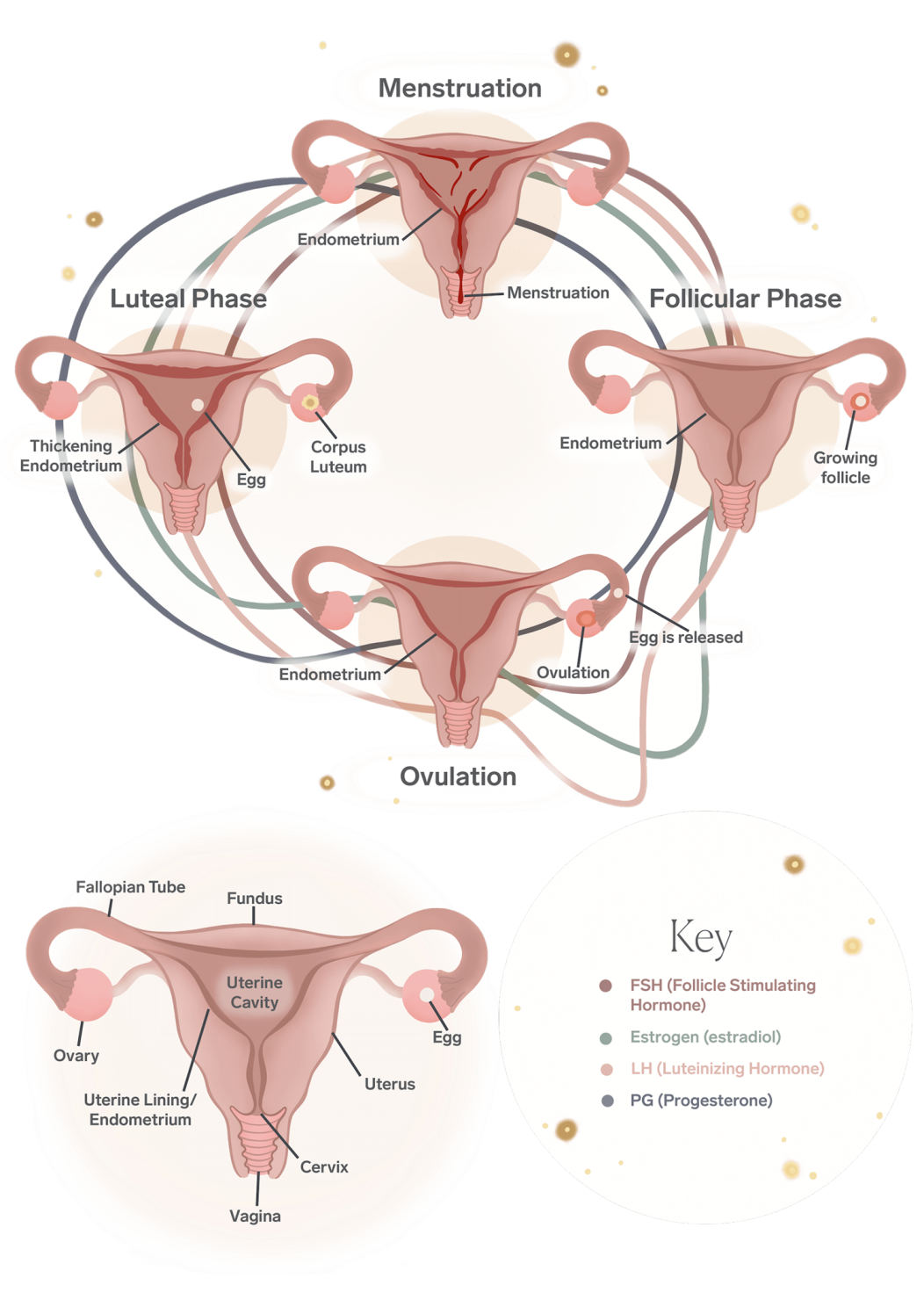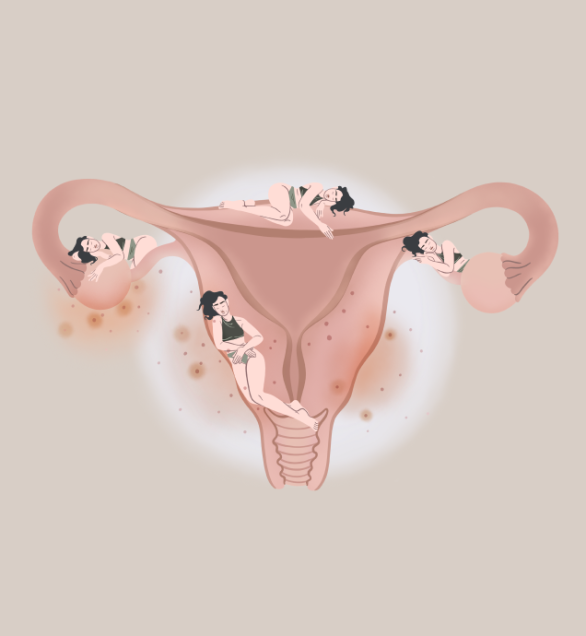The Zoom In: What Happens During Ovulation
A closer look at what really happens during the second phase of your cycle.
There are four menstrual cycle stages: menstruation, follicular phase, ovulation, and luteal phase. Here's what happens during the ovulation phase:
Your brain's told your ovary to prepare an egg. Ovulation during the menstrual cycle is when the egg is released and begins its travel down the fallopian tube. Think of ovulation as the dividing point between your follicular and your luteal phase.

Remember the follicle that was produced by the ovary in the follicular phase? Now it's time for the ovary to release an egg from the growing follicle. A peak of estrogen sends a signal to the brain to produce luteinizing hormone (LH), which triggers your follicle to release its egg.
The egg will then travel down the fallopian tube towards the uterus. It will only be viable for 12 to 24 hours, and if it's not fertilized by sperm, it will break down.
This phase is accompanied by some symptoms you can look out for. Ovulation symptoms can include a change in basal body temperature, vaginal secretions, ovulation pain, etc. The basal body temperature is your body's temperature at rest, which can increase during this stage. An increase in vaginal secretions can be present before ovulation but during ovulation, the cervical mucus will decrease and becomes thicker. Ovulation pain that is experienced during this phase is common and can be treated with pain patches placed on the uterine area.
Understanding how to track your menstrual cycle is important to note when you'll be in the ovulation phase. Tracking your menstrual cycle can come with many benefits and be especially useful when tracking the fertilization window. Menstrual periods can vary and some can experience irregular periods, but that doesn't mean tracking the cycle and ovulation phase isn't possible.
Your hormones can be complex and unpredictable. That’s why we’re here, on The Regular, to do what’s long overdue - to demystify what’s going on with our reproductive systems, our hormones and our whole cycle.
We’re here to support your day-to-day queries serving useful content that is uncomplicated and unbiased. No topic is too complicated or too specific for us to address/focus on.


